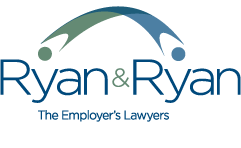In March, the Second Circuit issued a significant decision in ruling that a human resources director can be held personally liable under the FMLA.
In Graziadio v. Culinary Institute of America, the Plaintiff sued her former employer, alleging that she was terminated in violation of the FMLA and the ADA after taking leave to care for her son’s medical issues. Specifically, the Plaintiff requested and was granted FMLA leave to care for her son’s diabetes. On the date of her return to work, her other son broke his leg. As a result, the Plaintiff requested additional leave, including intermittent leave. The Culinary Institute of America (“CIA”) countered that, despite several requests, the Plaintiff failed to provide medical information certifying the need for intermittent leave. When the Plaintiff asked for what specific information was needed, CIA’s Director of Human Resources allegedly refused to provide details and informed the employee that it was her responsibility to provide complete medical information without any guidance from CIA. Eventually, the Plaintiff was terminated for job abandonment.
The Plaintiff filed suit, claiming retaliation and interference in violation of the FMLA, and discrimination on the basis of her association with her son in violation of the ADA. In addition to naming the CIA as a defendant, she also personally named its Director of Human Resources.
The District Court granted summary judgment in favor of CIA and the Human Resources Director, which included a finding that the Human Resources Director was not an “employer” under the FMLA. The Second Circuit reversed, finding that the Human Resources Director could be considered an “employer,” and remanded the case for a jury trial.
In support of its finding, the Second Circuit relied on the “economic realities” test utilized in Fair Labor Standards Act cases. Pursuant to this test, a manager may be considered an employer if they have the power to control the employee. In making this determination, courts consider the totality of the circumstances based on a set of nonexclusive and overlapping factors including whether the employer: (1) has the power to hire and fire the employees; (2) supervises and controls employee work schedules or conditions of employment; (3) determines the rate and method of payment, and (4) maintains employment records.
Under this test, the Circuit Court found that there was adequate evidence to indicate that the Human Resources Director sufficiently controlled the Plaintiff’s employment to be subject to liability under the FMLA.
The application of the “economic realities” test in the FMLA context is groundbreaking, and means an increased risk of individual liability for human resource professionals, managers, and supervisory personnel.
